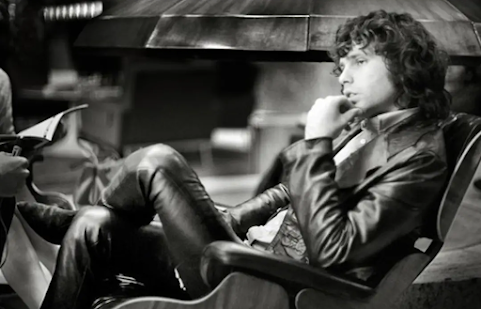THE DOORS' “ROCK ME”: LOVED, BUT NEVER RELEASED
The Doors have always loved "Rock Me", a traditional blues
song that they covered since the beginning of their musical journey in late
1965/early 1966.
The band has performed the song live many times throughout their career,
right up to the recording of "L.A. Woman" (the band's final LP,
released in April 1971).
At the time, the song was considered for inclusion on the album but was ultimately replaced by "Crawling King Snake" (another traditional blues cover that we discussed in another article (link here).
This decision was made for two main reasons. Firstly, many other groups
and artists had recorded versions of "Rock Me" over the years. The
second is the presence of another blues song very similar to "Rock
Me" on the record: “Cars Hiss By My Window” (composed by Morrison).
Although it was omitted from the 'L.A. Woman' tracklist, 'Rock Me' was
recorded by The Doors during the album sessions, confirming their intention to
release it on vinyl.
It was officially released a few years ago as an outtake (link here) of historical interest, but it is still a "work in progress" version and is even less enjoyable than 'Crawling King Snake', which ended up on the album instead.
As mentioned at the beginning of this article, The Doors had been
performing "Rock Me" live since early 1966, and fortunately, traces
of this performance can be found on a few live recordings.
These include concerts from the 1970 tour, during which the group often
performed the song. It also appears on the historic recordings made at 'The
Matrix' in March 1967.
Of all the live versions of 'Rock Me' performed
by The Doors, however, the one at the “London Fog" in May 1966 is
particularly notable (link here).
The audience present on that occasion were treated to a fascinating
performance, which included an unusual and brief harmonica solo by Morrison.
The singer's voice is undoubtedly the most intriguing aspect of the
"London Fog" version, transitioning from the somber charm of the
opening to the intense screams of the finale.
But where did "Rock Me" come from, and where did The Doors get
the idea of performing it?
The song dates back to at least the 1920s and is one of many traditional
blues tunes that have been played and reworked countless times by many blues
musicians.
This uncharted path leads us to the first recorded version of the melody
and structure of the tune, attributed to the great Big Bill Broonzy in a 1940
recording entitled “Rocking Chair Blues” (which belongs to the male urban blues
style, link here).
Broonzy's guitar is accompanied by drums in the background and features a
piano solo. The aggressive vocals and engaging rhythm anticipate the
innovations that would later occur in the blues genre.
Another important artist, Arthur 'Big Boy' Crudup, contributed to the
evolution of "Rock Me" by incorporating it into the sphere of Chicago
Blues (he recorded it in 1944 as "Rock Me Mama", link here).
This version features subtly played drums with brushes instead of sticks
and the metallic tones of the artist's signature “resonator guitar”, making it
arguably the best version of this traditional blues ever made.
In December 1950, Melvin Lill' Son Jackson (a renowned bluesman from Texas) interpreted the song as "Rockin' and Rollin'", showcasing his distinct country blues style (link here).
This performance is slightly faster than previous ones, with Jackson's
expressive voice intertwining remarkably with his excellent acoustic guitar
skills.
Fast forward to 1956 when Muddy Waters released
the definitive version of the song, finally titled "Rock Me" (link here).
Little Walter's famous harmonica embellishes this rendition of the
composition, which is performed in the Chicago blues style. Here, the rhythm is
stronger and more powerful than those on the earlier versions.
“Rock Me” is a well-known blues classic with old and noble origins. It ran
throughout the Californian quartet's career, from their fiery early stages in
1965-66 to their bittersweet end in 1971.
P.S.: My book "The Doors Through Strange Days"- The most comprehensive journey ever made through The Doors' second LP, is available on Amazon.com, .uk, .mx, .it, etc.
Here’s a link:




Comments
Post a Comment